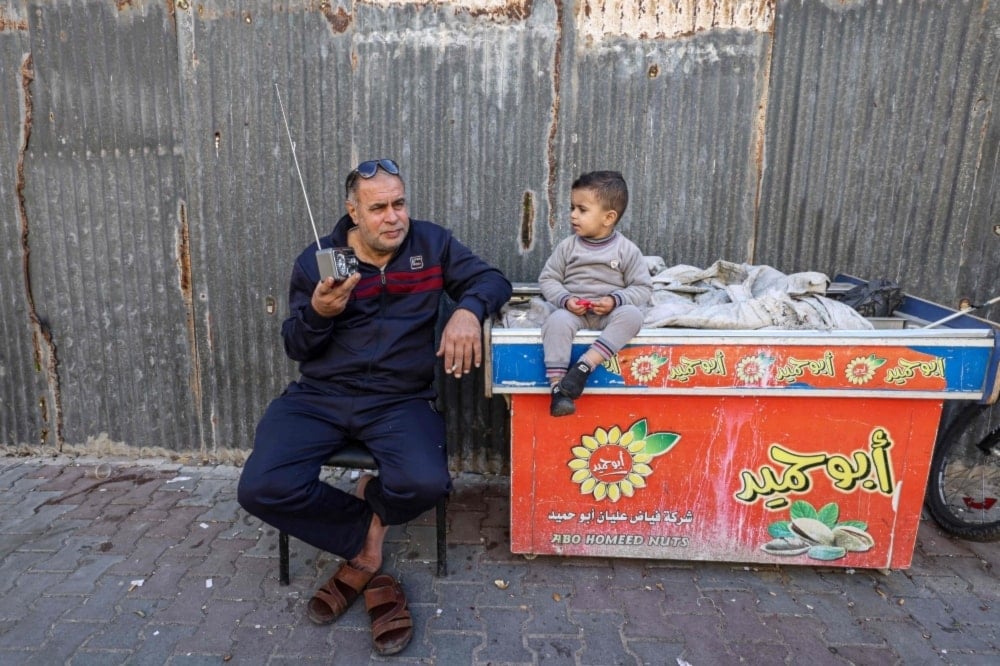UN labor agency says Israeli bombing slashed 66% of Gaza employment
Palestinians in Gaza are in the middle of a humanitarian tragedy of "epic proportions", according to the International Labor Organization.
-

A Palestinian man listens to his radio in a refugee camp in Rafah in the southern Gaza Strip on December 19, 2023. (AFP)
The current war on Gaza has wiped out at least 66% of employment in the besieged Palestinian strip, according to the UN labor department on Wednesday.
According to the International Labor Organization (ILO), this equates to a loss of 192,000 employment since October 7, according to a joint bulletin released with the Palestinian Central Bureau of Statistics (PCBS).
The report details that the Palestinian unemployment rate is likely to nearly triple year-on-year owing to the continuous war.
In terms of the impact of ongoing confrontations in the West Bank, estimates suggest that 32% of employment, or 276,000 jobs, have been lost.
As of November 30, 468,000 jobs were expected to have been lost in the occupied Palestinian territories, replacing the prior ILO and PCBS estimate of 390,000 employment losses.
This equates to $20.5 million in missed daily labor revenue.
According to the report, the occupied territories' unemployment rate is expected to rise from 24% in the fourth quarter of 2022 to 46.1% in the fourth quarter of 2023.
ILO Regional Director for Arab States Ruba Jaradat stated that the Palestinians in Gaza "are in the midst of a humanitarian catastrophe of epic proportions," detailing that the repercussions on their lives are "beyond anything seen in the Occupied Palestinian Territory before."
According to Jaradat, the economic, social, and development impact has "grave cascading implications" for the labor market, not just in Gaza but also in the West Bank.
Not only are Palestinians in Gaza out of jobs and sustenance, but their children have been receiving about 10% of the water they would typically require, thus leaving them with "barely a drop to drink," UNICEF warned in a statement.
The children's organization emphasized that water and sanitation services across the Strip have reached a "point of collapse," which prompted an alert as children will be the most impacted.
"The impact of this on children is particularly dramatic because children are also more susceptible to dehydration, diarrhea, disease, and malnutrition, all of which can compound to present a threat to their survival," UNICEF warned, adding that "concerns of waterborne diseases such as cholera and chronic diarrhea are particularly heightened given the lack of safe water, especially following this week’s rains and flooding."

 3 Min Read
3 Min Read








